Anna
Dying is such a long journey. I have come to the end of my road. My daughter’s anguish hinders me, holds me back. I linger despite the pain and despite my desire to get it over with. I stay because of Abi.
I have always harbored a secret place within. A place where I could retreat no matter what. I call it my stronghold. In this room, because I see it is as a room, the walls protect my heart on days of anguish, and happiness is let in as abundant showers of light. It is where I cry out in my pain. It is where I put words to my fears, and also where I sing at the top of my voice. I speak loud. I debate, always brilliantly, finding words that free and unshackle me. I stand at the window when I need to observe the world, then close the shutters when I feel like stepping away from it. This place exists only in my mind, but it’s as real to me as the air I breathe—it’s where I paint the world with my soul’s rainbow. Nobody who has passed through my life, whether family, friend, lover, or husband, has ever entered this room. None except Abi. Barely had she been born when, for the first time, I heard a voice other than my own in this shelter of mine. It was the babble of a child that I recognized right away. I knew then that I was whole at last.
I never knew my mother. She died bringing me into this world. Just like her mother and her mother’s mother before her. Three generations of girls orphaned at birth. Lives starting amid loss and grief. Abi came along to break the curse.
From the few stories I was told, my great-grandmother was not from our village. She was tall, with a tapered waistline, wide hips, dark skin, delicate features, lush hair. Everyone called her “Samgali”… This uncommon name was the starting point for Abi’s research. She thought that my ancestors may have been Fulani and “Samgali” was the result of a mispronunciation of “Senegalese” in the local language. I laughed at my daughter’s rich imagination but, on thinking about it more, it was not far-fetched.
Islam came to Cameroon through the Sudano-Sahelian route. First came Shuwa Arabs, as early as the seventeenth century, followed by the Fulani or Fulbe in the eighteenth century. The religious conquest only started in the nineteenth century, when Usman Dan Fodio stretched his Upper-Niger empire to the Adamawa and gave authority to Modibo Adama to form lamidates in Ngaoundere, Garoua, and Maroua. The new conquerors either enticed or forced natives to convert, but were stopped by the immense equatorial forests in the South—to which they were unaccustomed—and by Christianity, which was already deeply entrenched. They settled in the northern part of the country and made it a habit to cross our land during their seasonal livestock drive. Abi explained all this to me. My daughter is a passionate scholar.
Where did Samgali come from? What violence forced her to flee? What strange migration had dropped her off at our doorstep like an offering? If anyone knew the answers, no one ever told me. As contradictory as it seems, our societies are built on both bonds and silence. Our joys are loud and our grief demonstrative. Our voices are strong and our laughter thunderous. But rarely do we say a word about our private lives. We don’t have as many taboos as people claim, but esoteric interpretations blur the messages.
Abi is in tune with her era. My grandson, Max, even more so. They demand answers, all sorts of explanations. They ascribe virtue to all sorts to transparency, which they label truth, and have no patience for pretence. Where do they get this strength from, this confidence that I envy, this arrogance? We are so much more than the sum of our parts. Our gray areas would not stand the light. What world could survive the systematic exposure of everyone’s secrets? This is blasphemy in Abi and Max’s eyes. I understand what they’re saying. I always thought that there were instances where silence buttressed the bond better than baneful truths, but I am not so sure anymore.
I grew up in the care of Awaya; she was an old village woman, widowed several times over. She had raised my mother before me and had known Samgali. She was our bond: the link between the dead women and their daughters.
Awaya was a tough, hard-working woman. She’d married young to a polygamous man and been bequeathed to his brother; most of her children were grown and had already left home when I was born. Only the two of us lived in her house. She was the first person to tell me about Samgali. They had been married to brothers and shared a great friendship, the kind that sometimes unites two souls that just click instantly.
Samgali died while giving birth. Awaya took in her young daughter, fed the baby her own breast milk, and raised her like her own child until misfortune struck again with even more brutality. One of Awaya’s sons became so madly enamoured with Trissia, my grandmother, that he lost his mind. They had been raised by the same woman, in the same house: as far as everyone in our community was concerned, they were siblings. For them to be in love was therefore forbidden, incestuous. But the young man did not listen to reason. He was doomed by his yearning for Trissia. He decided to force destiny’s hand by getting her pregnant. History bears no account of little Trissia, the object of this impure affection. If I reckon correctly, she was no older than twelve then. She died giving birth to my mother. Poor child, a young offshoot torched prematurely, gone up in smoke. The young man fled the village when he learned that his beloved had died. This is how Awaya lost her two children.
My mother’s fate was even worse; she married a man famous for his fits of madness and violence. He beat her furiously one time too many while she was at full term.
This is the tragic story of my mothers, the cursed daughters of Samgali.
Awaya took me in just like she had done with those before me, pitting her sense of duty against the cruelty of fate, steadfastly believing in life’s eventual triumph against fatalism. From the day I was born, she called me “Bouissi,” sunrise. Defying the anathema, she decreed that the Stranger’s curse ended with me; we were worthy of the light of a new day. And she made a resolution that would change the course of my existence, but would also pull me away from my family and cause me to betray this woman who had done so much for me, for us. Awaya decided that I would be an educated woman and enrolled me in the mission school.
Every Sunday, my elderly guardian went to church, where she prayed to the Lord fervently. This did not stop her from living out her traditional spirituality with just as much passion, though. When I was born, even before my mother’s funeral, she took me into the forest and marked me for protection. “Enough is enough, Samgali. Enough is enough, my sister. This must stop,” she murmured, cutting my newborn skin with a blade and rubbing a concoction of her own making into the wounds.
Both of my wrists, my ankles, the small of my back, my upper chest, and my forehead still bear the thin, finely drawn scars. They are quite hard to see, but the cuts must have been deep, since the scars have stood the test of time.
Throughout the time I spent in her home, Awaya always blessed me before I left in the morning. She warmed leaves on her stove and then pressed them against my chest and stomach, summoning protection over me from all the forces in her power—God, the Virgin Mary, our ancestors. She’d close with an appeal to Samgali every time: “Here goes our sunrise, my Samgali. Watch over her every step, my sister. Be my eyes and my ears around her. Bouissi is heading out.”
On my first day of school, the white nun, my schoolteacher, called me “Anna.” I did not respond. I hadn’t understood that she was talking to me; nobody had ever called me by my Christian name before. Everyone in the village called me Bouissi, just like Awaya. I immediately loved this Anna I was meeting for the first time and decided that at the first opportunity, I would drop Bouissi to become Anna. I’d study, read, become a learned, confident, remarkable woman and elude the fatality of ordained grief. I would no longer be that defenseless baby that was taken into a forest in the dead of night and entrusted to spirits, or a little girl under the protection of a deceased woman who had been unable to watch over her own self. Someday I would become Anna, as the white lady had called me.
And I did study, read, and work hard because, for people marked by fate like myself, school—Western education—was the only possible path to progress. I mimicked my way into a passionate yet calculated love affair with Catholicism, because this foreign man-child-God of a redeemer promised me a form of spirituality that required severing ties with one’s past, turning away from one’s own family to be born again, delivered. A form of spirituality in which the first would be the last and vice versa. All I had to do was sail with these clergy, stay the course, speak like them, carry myself like them, jettison the obscurantism of my people. This belief was tailor-made for someone like me. I slipped into it seamlessly, the way one finally returns home.
***
Pre-order Days Come and Go: Amazon
Excerpt from DAYS COME AND GO published by Two Lines Press. Copyright © 2022 by Hemley Boum.


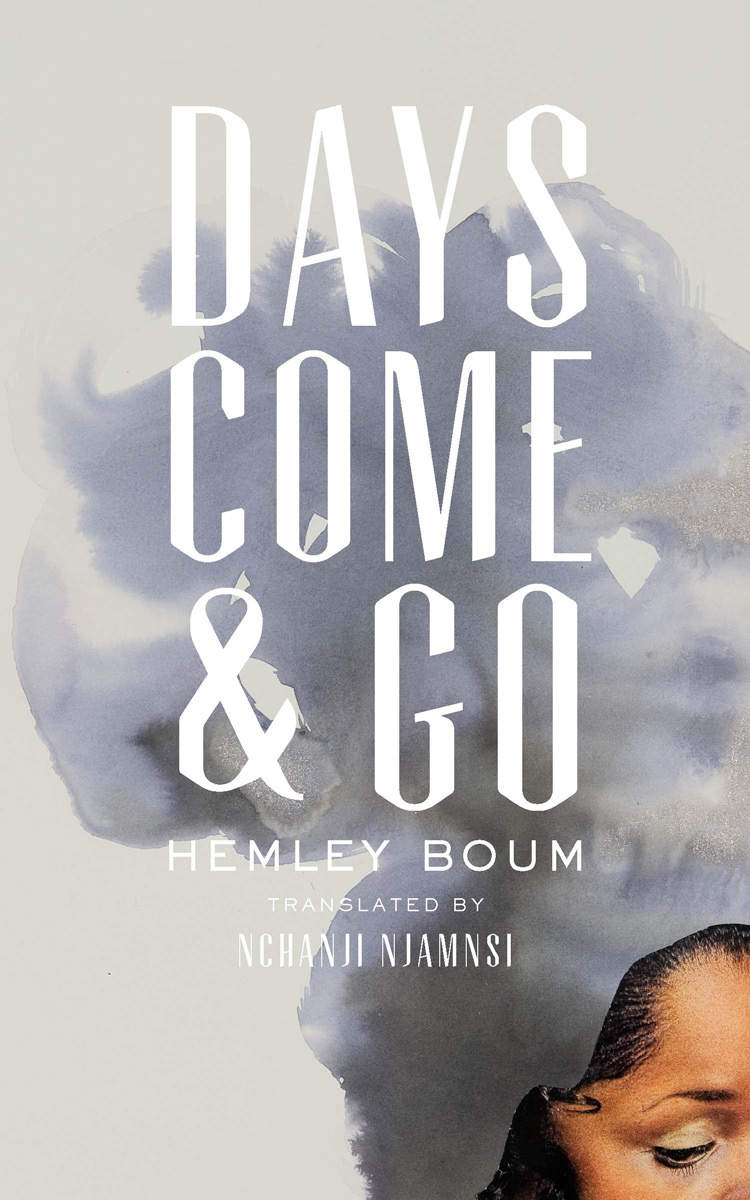
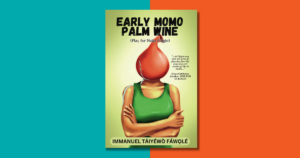
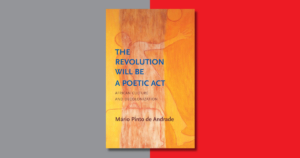
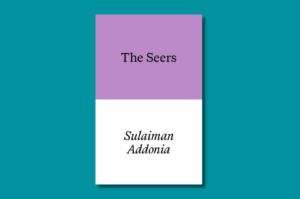
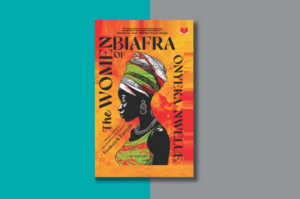
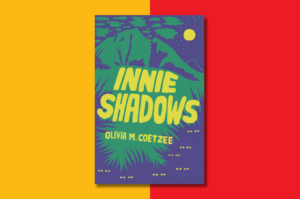


COMMENTS -
Reader Interactions